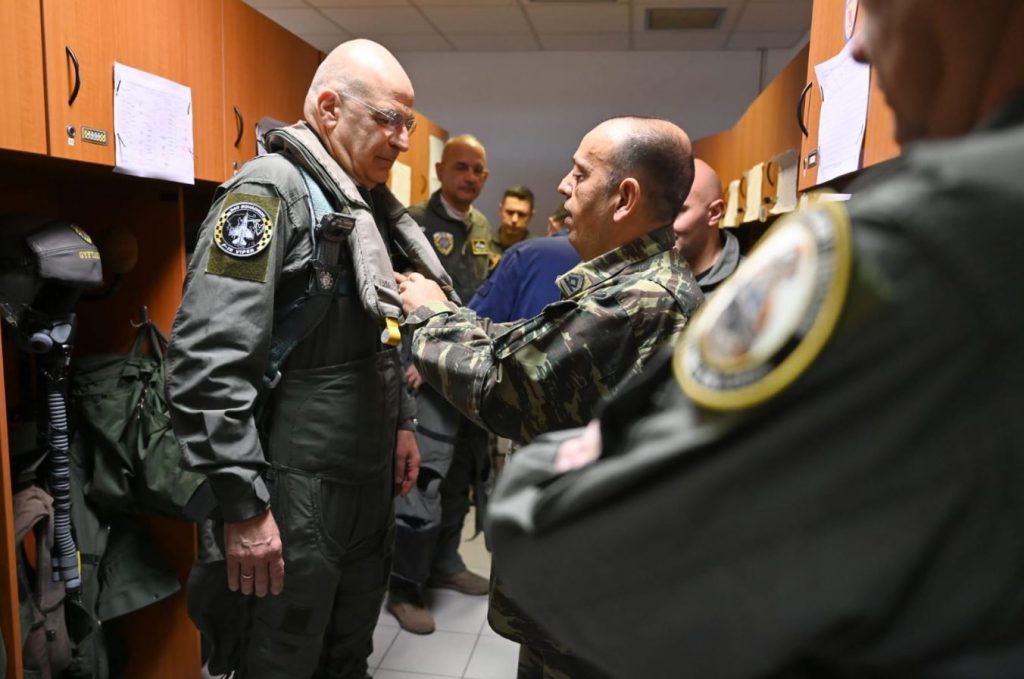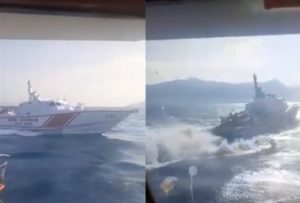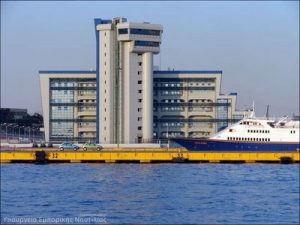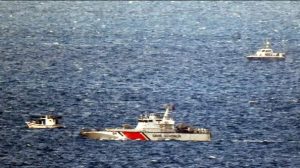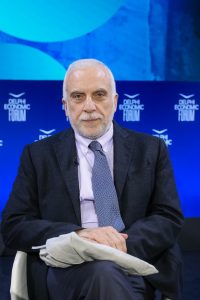Greek Defense Minister Nikos Dendias used blunt language on Friday in relation to decades of revisionist claims and often belligerent rhetoric by official Ankara to dispute Greece’s sovereignty in the Aegean Sea, and of late, even Greek islands. His comments were somewhat of a surprise given an ongoing “thaw” in bilateral relations over the past year, but after a prolonged period of tension and even saber-rattling on the part of the Erdogan administration.
In comments made on a podcast to the media platform Athens Voice, Dendias was first asked about an incident over the weekend whereby a Turkish coast guard patrol boat attempted to chase away Greek fishing vessels from a maritime region east of the north Dodecanese island of Kalymnos.
Similarly, referring to the twin Imia rock islets in whose vicinity the incident was recorded, Dendias directly pointed to the milestone 1923 Treaty of Lausanne, which he said “can be easily read by both the Turks and us. They know very well that what lies beyond three (nautical) miles of Turkey is Greek, we know it too.”
He also highlighted official Turkey’s attempt to “manufacture” disputes over islands’ sovereignty in order to fuel a possible long-term strategy that continually challenges Greece’s established territorial rights. Dendias emphasized that such actions create unacceptable secondary disputes.
In other related developments, Dendias, the former foreign minister, said it was now imperative for the Greek armed forces to achieve greater self-sufficiency and autonomy in order to tackle various challenges, including electronic warfare and security against communications interference.
Concerning the strategic agenda for 2020-2030, he reiterated the necessity for the country’s military to adapt to a new era, emphasizing that this transition is essential, given Turkey’s emphasis on domestic defense technology. While acknowledging the country’s current limitations in mass-producing drones and other weapon systems, he expressed confidence that within six years Greece will attain the capability to effectively address anticipated challenges.
